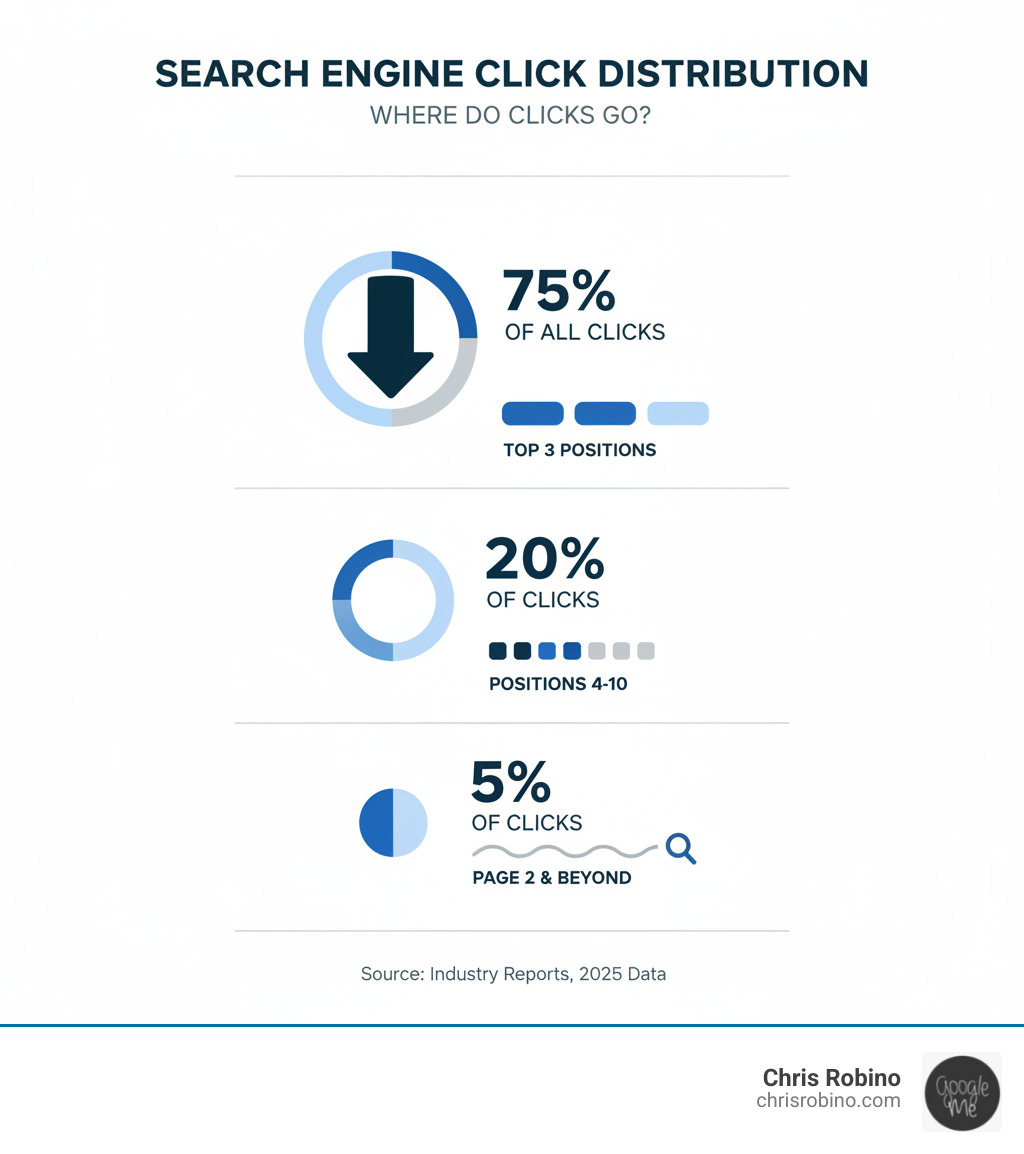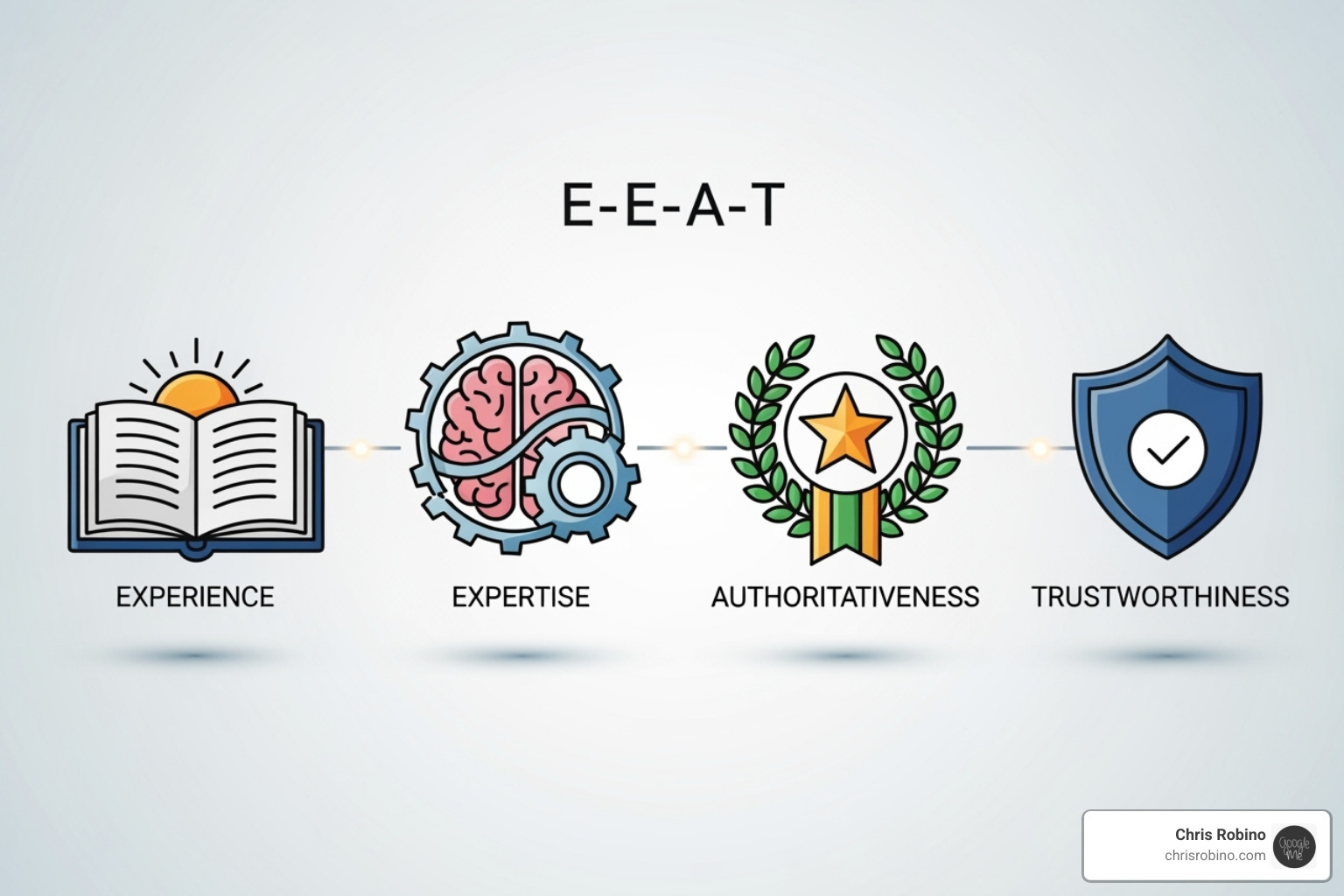Why Search Engine Rankings Matter for Your Business Success
Search engine rankings tips are the foundation of digital visibility in 2025. Here are the most effective strategies that deliver results:
- Create high-quality, authoritative content that demonstrates expertise and first-hand experience.
- Optimize technical performance with fast loading speeds and mobile-friendly design.
- Build strong backlinks from reputable, relevant websites in your industry.
- Focus on user experience with clear navigation and valuable content.
- Target the right keywords based on search intent and competition analysis.
- Maintain consistent local SEO across all business locations and directories.
- Monitor performance regularly using tools like Google Search Console.
- Update content frequently to maintain relevance and freshness.
- Ensure mobile optimization since most web traffic comes from mobile devices.
- Implement structured data markup to improve search result appearance.
The stakes couldn’t be higher. Websites on the first page of Google capture the vast majority of clicks, while those on page two are nearly invisible. The top search result alone often receives over a third of all clicks, making a high ranking critical for business success. With Google dominating the search market, mastering these rankings isn’t optional—it’s essential for survival and growth.

Introduction to Search Engine Rankings
Search engine rankings are your digital storefront. A first-page position determines how many qualified buyers find and visit your business online. These rankings reflect where your pages appear for relevant queries as algorithms evaluate millions of options to surface the best answers.
For large companies, the impact is outsized: organic traffic typically converts more efficiently than paid, reinforces brand authority, and reduces acquisition costs at scale. Strong rankings compound over time—shaping market perception, lifting demand generation, and influencing buying decisions long before a prospect engages sales.
Actionable Search Engine Rankings Tips for 2025
For large companies, a holistic approach combining content, technical optimization, and authority building is crucial. Let’s dive into the core strategies we recommend.
Foundational On-Page SEO: The Best Search Engine Rankings Tips for Content
On-page SEO is about making your content clear and compelling for both users and search engines. For enterprise sites, this begins with strategic keyword research to understand not just what people search for, but why. We map keywords to user intent (informational, commercial, transactional) across the customer journey.
This intent-driven approach informs the creation of high-quality content that demonstrates Experience, Expertise, Authoritativeness, and Trustworthiness (E-E-A-T). This means content should be backed by first-hand experience and expert knowledge. Regularly auditing and updating content is also key to maintaining freshness and relevance. For efficiency, AI tools can assist with research and outlines, allowing human experts to focus on adding unique insights and authority.
Finally, optimize the small but mighty on-page elements. Write concise title tags (under 60 characters) and compelling meta descriptions (under 160 characters) to improve click-through rates from search results. For images, use descriptive filenames and alt text to help search engines understand their context.

Technical SEO & UX: Essential Search Engine Rankings Tips for Performance
Technical SEO ensures your site is fast, accessible, and provides an excellent user experience (UX). A poor UX can cause users to bounce back to search results, signaling to Google that your page isn’t helpful. Site speed is a confirmed ranking factor, especially with Google’s mobile-first index. Prioritize fast load times by compressing images, minimizing code, and using a Content Delivery Network (CDN).
Your site must meet Google’s Core Web Vitals, which measure loading performance, interactivity, and visual stability. With over 60% of traffic coming from mobile, a responsive design that adapts to any screen size is non-negotiable. A clean, logical URL structure and a robust internal linking strategy also help search engines crawl and understand your site’s hierarchy, preventing valuable pages from becoming orphaned.

Building Authority with Off-Page & Local SEO
Off-page SEO builds your site’s authority, primarily through backlinks. Focus on acquiring high-quality links from reputable, relevant websites. This is achieved not by buying links, but by earning them through content promotion, guest blogging on authoritative sites, and digital PR that secures brand mentions.
For businesses with physical locations, local SEO is paramount. The cornerstone is your Google Business Profile (GBP). Ensure every location has a complete and verified profile with a consistent Name, Address, and Phone number (NAP) across all online directories. Encourage and respond to customer reviews to build trust and prominence in local search results.

Tracking & Monitoring Your SEO Progress
Continuous monitoring is essential for measuring ROI and adapting your strategy. For large sites, manual rank tracking is impossible. Automated rank tracking tools are necessary to get accurate, unbiased data across thousands of keywords and locations. These tools provide the historical data needed for trend analysis.
Use Google Search Console to monitor impressions, clicks, and indexing status directly from Google. Combine this with an analytics platform to connect ranking performance to business outcomes. Avoid common mistakes like focusing on daily fluctuations instead of long-term trends, ignoring mobile rankings, or collecting data without acting on it. Analyze performance by content type, business unit, or keyword cluster to identify what’s working and where to focus your efforts.

Ranking Across Different Search Engines
While one engine dominates the market, extend your footprint across additional search surfaces relevant to your audience. Video search is critical where multimedia is part of the journey: optimize titles, descriptions, captions, and thumbnails. Track performance across channels to understand total visibility and uncover incremental, low-competition opportunities.
Conclusion: Achieving Sustainable SEO Success
The journey to mastering search engine rankings tips is an ongoing process, not a one-time fix. For large companies, sustainable SEO success hinges on a comprehensive, integrated approach that evolves with your business and your audience.
We’ve covered the pillars of strong rankings: meticulous keyword research, high-quality E-E-A-T content, technical excellence, and strategic authority building. Unlike paid advertising, SEO is a long-term investment. The work you do today builds compounding value, strengthening your digital presence and earning audience trust for months and years to come.
High rankings are a byproduct of creating genuine value for your users. The organizations that dominate search results in 2025 will be those that consistently prioritize user experience while demonstrating real expertise. When all these elements work together seamlessly, you achieve transformative and sustainable growth.
